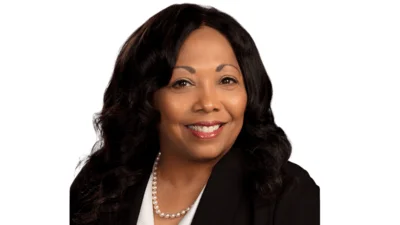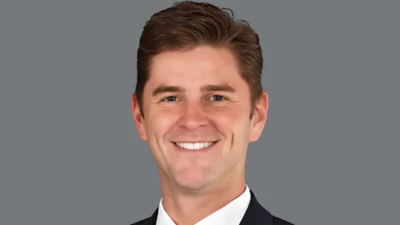The Illinois Department of Commerce and Economic Opportunity Percentage of Income Payment Program(PIPP) Steering Committee met April 8.
The Illinois Department of Commerce and Economic Opportunity administers economic and workforce development initiatives in partnership with businesses, local governments, workers and families to create and retain high-quality jobs and build strong communities.
Here are the meeting minutes as provided by the Illinois Department of Commerce and Economic Opportunity:
Attendance in Chicago Members: Jen Fenske, Nicor Gas; Adrian Gonzalez, Nicor Gas; Nancy Kane-Richards, Community Contacts; Jennifer Schmidt, CEDA; Kathy Walk, CEFS
Guest: Adrian Gonzalez, Nicor Gas
DCEO Staff: Maria Gallardo, Leslie Ann Lesko, Angela Westbrook
Attendance in Springfield Members: Melanie Brown, Ameren Illinois; Mindy Browning, ERBA; Gail Hedges, Department of Commerce & Economic Opportunity (DCEO); Anthony White, Ameren Illinois
Attendance via Conference Telephone Members: Kimberly Burdine, Commonwealth Edison; Allen Cherry, Attorney General’s Office; Aimee English, Citizens Utility Board; Kerri Halsall, DuPage County Department of Community Services; Joan Howard, Illinois Commerce Commission; Michelle Machay, Peoples Gas/North Shore Gas; Jim Monk, Illinois Energy Association; Lauren Pashayan, Land of Lincoln Legal Assistance; Ashley Piwowarczyk, DuPage County Department of Community Services; Barbara Richardson, Legal Assistance Foundation of Metropolitan Chicago; Martha Strawser, Rockford Human Services; Dalitso Sulamoyo, Illinois Association of Community Action Agencies (IACAA); Kris White, Will County
Guests: Grace Brigando, Commonwealth Edison; Cherise Conley, Commonwealth Edison; Philip Gentry, Illinois Association of Community Action Agencies (IACAA)
DCEO Staff: Kevin Harrison, Janet Hawes-Davis, Patty Hughes, Ben Moore, Amy Park
Call to Order Gail Hedges called the meeting to order. The meeting was turned over to Maria Gallardo to preside.
Approval of Minutes Kathy Walk made a motion that the March 1, 2016, minutes be accepted with correction noting that Joan Howard was in attendance via conference telephone. Nancy Kane-Richards seconded the motion. A vote was taken, motion carried.
PIPP Discussion Items
• Proposed Program Year (PY) 2017 changes to handle demand being greater than funding with no opportunity for non-priority households to apply for PIPP was discussed.
1) Reduce the Annual Maximum Benefit Amount from $1,800 to $1,600 - This proposed change was discussed in detail during the March 1, 2016 meeting. DCEO legal counsel and one of the advocates met via teleconference to discuss whether this change is protected and allowed according to the Energy Assistance Act. The advocates’ position is that DCEO has no authority to make such program change as the Act clearly states that adjustment of the maximum benefit level is not allowed. Advocates indicate that this proposed change may be illegal and is not in the best interest of customers. OEA intends to administer PIPP in PY17 contingent upon spending authority. The department is committed to being fiscally responsible and to administer PIPP in the best interest of customers. OEA will review all funding options to ensure that the non-priority population can also be served.
OEA Recommendation: OEA trusts that it has the authority to reduce the maximum benefit level as per the Act. This proposed change is being analyzed. No final decision has been made at this time.
2) Reduce the Income Eligibility Requirement from 150% of the Federal Poverty Guidelines to 125% - This proposed change was discussed and feedback received.
OEA Recommendation: OEA trusts that it has the authority to reduce the income eligibility as per the Act. However, this proposed change will not be implemented in PY17 as it will present intake challenges.
3) Client Choice and Establishing a Minimum PIPP Benefit Threshold – Senior citizen households with higher income levels and lower usage feel secure participating in PIPP. However, PIPP may not be beneficial for these households as their PIPP benefit could be either $0 or a very small benefit amount. The Act is silent on customer choice of participating in PIPP vs. LIHEAP. LAAs are carrying out a great deal of work for households where the cost of administering PIPP will be higher than the benefit the customer receives. The minimum PIPP benefit amount is not currently included in the Business Rules. The Committee and advocates are not comfortable with this legal argument without having DCEO legal counsel present argument to substantiate that this change in customer choice is legal. Advocates guard the integrity of the statute and recommend that legal authority is presented at this time.
OEA Recommendation: OEA recommends implementing this proposed rule change. OEA will be in contact with legal counsel and will provide an update at the next PIPP Steering Committee meeting.
• Arrearage Reduction Plan (ARP) for Direct Vendor Payment (DVP) Participants- DCEO legal counsel and advocates trusts that this proposed change is protected by the Act. It is the intention of OEA to rewrite LIHEAP.net so that it’s capable of accommodating this proposed change. Utilities would require additional resources to implement a tracking mechanism to determine whether the ARP vs. DVP is a better customer choice. Utilities indicated that discussion must be held with their information technology staff. The DCEO Office of Information Management indicates that, although this is a good idea, time will not allow this change to be implemented in PY17. When the DVP benefit amount is more than the PIPP benefit amount and the ARP is zero, applicants must then be offered a DVP.
OEA Recommendation: OEA trusts that it has the authority to implement this proposed change as per the Act. This change will not be implemented in PY17 due to technology constraints.
• PIPP Start Up Plan - OEA intends to start PIPP along with LIHEAP in September contingent on the state budget and appropriation authority to expend federal and state LIHEAP funds. Capitol Strategies returning for Single Tracking and Reporting System (STARS) program support was discussed. Contracts and grants for PY17 are suspended at this time. Therefore, Capitol Strategies will not be returning at this time. Legislation is currently being adopted to establish a contingency appropriation that will allow state and federal spending authority without a budget. Senate bill 3281 has been filed with the committee and has approximately 20 co-sponsors. OEA has not received any additional information on the funding status from the Governor’s office at this time. Discussion of receiving funding authorization to ensure a September start-up for PIPP was discussed. LAAs discussed start-up times that are best to train staff and prepare for the program year.
• Review of the Final Draft of the PIPP Business Rules Approved by the Policy Advisory Council (PAC) - A handout of the overview was provided and discussed. The overview of changes was also discussed during the March 1, 2016 meeting. No further comments were received. OEA will circulate the final document prior to the July meeting.
• Zero Income Households – Overall review is being conducted. OEA has an inter-agency agreement with DHS to verify questionable applications and/or disputes of social security numbers. Only OEA staff currently has access to this database. DHS will launch a new database system in July. The department is requesting that LAAs are also included to have permissions for accessing this system. The department is concerned that clients who have zero income are enrolled in PIPP. As part of the PIPP requirements, a PIPP client has a Client Payment Responsibility (CPR). Therefore, this poses the question as to how zero income households can pay their monthly CPR. OEA feels that this population may be better served through LIHEAP.
OEA Recommendation: The department recommends that zero income households pay a minimum of $10 per month. LAAs are not in support of this recommendation. Advocates request details on performance and data on zero income households prior to considering this recommendation.
Other Business A report of PIPP analysis for PY15 was provided and discussed. The report includes amounts spent by count with percentages on primary benefits, secondary benefits, and poverty levels. Zero income population will also be reviewed and included.
Adjournment A motion was made to adjourn. Motion was seconded. Motion carried.





 Alerts Sign-up
Alerts Sign-up